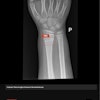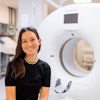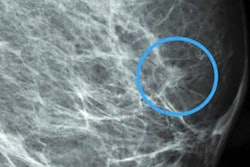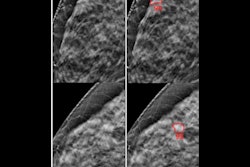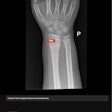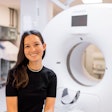
Most women are receptive to the use of artificial intelligence (AI) in breast screening and support the use of AI as a decision-support tool or in combination with specialists' input, a Scottish survey of patient attitudes has found.
 Dr. Wei Khor. Photo courtesy of University of Aberdeen.
Dr. Wei Khor. Photo courtesy of University of Aberdeen."Women are more attuned to the use of AI in breast screening if they feel they have a good understanding of AI," reported Dr. Wei Khor, clinical lecturer in primary care at the University of Aberdeen, and colleagues.
Dual reporting of mammography is common in European breast screening programs, and if the two readers disagree, a third reader arbitrates. However, a shortage of radiologists is putting breast screening in the U.K. under increasing strain, they noted.
Several AI systems have been developed that claim to be able to aid breast radiologists and alleviate shortages, but it is not clear how women who attend breast screening feel about the use of AI.
Participants who attended breast cancer screening in northeast Scotland were given an eight-question survey by the receptionist. In this questionnaire, participants were asked to indicate the degree to which they object to or approve of the following scenarios:
- AI replaces all human readers.
- AI replaces one of the two readers in dual reporting.
- AI examines all mammograms, but difficult images are sent to a human reader for review.
- All human readers have access to help them reach a clinical decision.
Participants could indicate their degree of approval or disapproval on a five-point Likert scale, ranging from "strongly object" to "strongly approve." The questionnaire also included four questions on demographics: age, family history of breast cancer, first breast screening visit, and self-assessed understanding of AI.
The secondary objective of the study was to explore whether there is a relationship between the collected demographic data and participants' views on AI for breast cancer screening.
Summary of results
Of the 152 participants, 117 (77%) were 50-64 years old, and 28 (18.4%) were over the age of 65. A total of 112 (73.7%) stated that they did not have a family history of breast cancer, and 122 (80.3%) had attended breast screening previously, the authors reported at last month's ECR 2021.
Based on responses to the four different types of scenarios, 128 (84.2%) participants said they would prefer the use of AI as a decision-support tool with the reading of mammograms by two radiologists (p < 0.001). Also, 126 (82.9%) women approved of the pairing of AI and a radiologist as initial readers, with disagreement arbitrated by a different radiologist (p < 0.001), and 114 (75%) women approved using AI only to read mammograms with abnormal mammograms being referred to a specialist (p < 0.001).
Interestingly, 93 (61.2%) women did not approve the use of AI without specialists' input (p = 0.891).
When asked if the use of AI would lead to faster screening results, 99 (65.1%) women felt they were more likely to approve the use of AI in breast screening, 49 (32.2%) did not feel any influence, and two (1.3%) were more likely to object to its use, according to Khor, who is undertaking a master's degree in public health and also works part time as a general practice registrar in Aberdeen.
Knowledge of AI
Survey participants were invited to self-report on their own understanding of AI, and 75 (49.3%) felt their understanding was average, 43 (28.3%) felt it was good, 17 (11.2%) felt it was poor, 10 (6.6%) felt it was excellent, and seven (4.6%) were not able to answer.
Further statistical analysis was carried out, in which the relationship between question response and understanding of AI was examined using Spearman's rank correlation. Self-reported understanding of AI was positively associated with response to the scenarios in bullet points 1 and 2 above (p < 0.001), but not with responses to the scenarios in bullet points 3 (p = 0.066) and 4 (p = 0.058).
"From this, it could be inferred that women who believed they had a good understanding of AI were more likely to approve of the scenarios presented in scenarios 1 and 3, and were more likely to approve of the use of AI, if it would lead to faster screening results" stated Khor, who has completed her internal medicine training in Aberdeen and holds a Membership of the Royal Colleges of Physicians (U.K.) diploma.
Editor's note: The number of the ECR e-poster is C-12407, and you can access it via the EPOS section for the congress.


